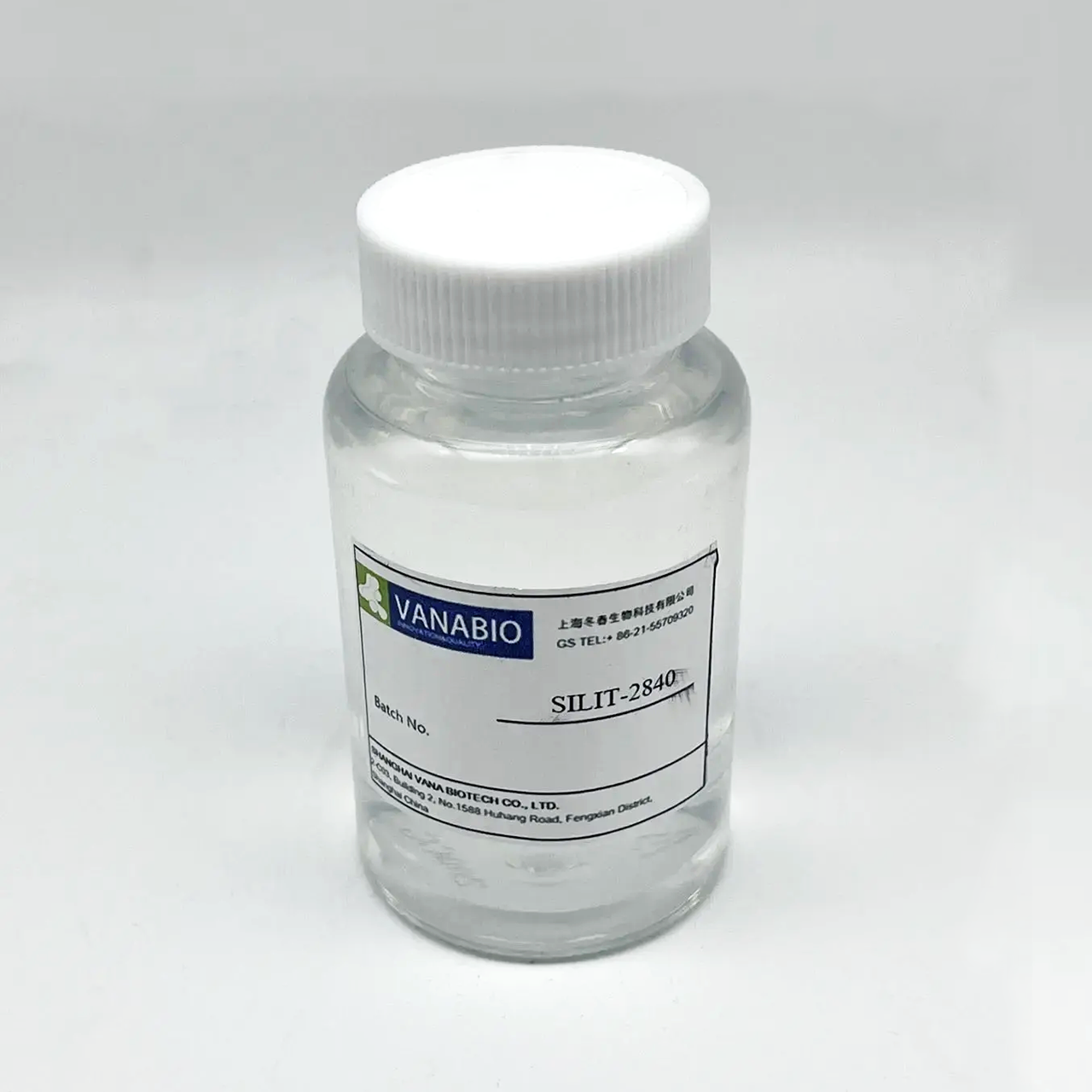1. Improvement of Handfeel and Softness
Traditional denim uses coarse yarns and a tight weaving process, resulting in a rough and stiff original handfeel. This causes skin friction during wear, especially in areas like the waist and cuffs, affecting comfort. Silicone oil effectively addresses this issue: with its low surface tension and excellent permeability, it quickly penetrates into fiber gaps, forming a uniform lubricating film on the fiber surface. This significantly reduces friction between fibers. For example, in the production of high-end women's denim fabrics, adding amino silicone oil for soft finishing can transform the handfeel of denim from rigid to delicate and soft, with a cashmere-like smoothness and a fluffy, plump texture, greatly enhancing the skin-friendliness of the garment. Many fast-fashion brands' "nude-feel denim" collections leverage this property of silicone oil, allowing consumers to feel comfortable and unrestricted even in tight-fitting jeans.

2. Enhancement of Abrasion Resistance and Tear Resistance
As a fabric frequently subjected to friction in daily wear, denim is prone to abrasion in areas like the knees and hips. The elastic protective film formed by silicone oil on the fiber surface acts as an "armor" for the fibers. When the fabric is rubbed or pulled, this film buffers the force, reducing direct wear and breakage between fibers. Take workwear denim as an example: after adding hydroxy silicone oil for abrasion resistance finishing, professional testing shows that its abrasion resistance increases from the conventional 2,000 cycles to over 3,500 cycles, and tear strength improves by approximately 30%. This specially treated denim maintains good integrity even after frequent use in high-intensity labor or outdoor activities, extending the garment's service life and being favored by construction workers and outdoor enthusiasts.
3. Waterproof and Stain-Resistant Finishing
In modern life, consumers have increasingly diverse functional demands for denim, making waterproof and stain-resistant functions a major selling point. Fluoro-modified silicone oil forms a low-surface-energy protective film on the denim surface through special molecular structure design, making it difficult for water droplets and oil stains to adhere. When water droplets fall on denim treated with such silicone oil, they immediately form beads and roll off without penetrating the fabric; common stains like coffee and oil can be easily wiped clean. For instance, some brands' "three-proof denim jackets" use a compound finishing process of fluoro-modified silicone oil and water repellents, which not only resists light rain but also effectively prevents stains like food residues, making them ideal for people who often dine out or commute. This functional denim retains the classic style of denim while adding convenient practicality, expanding the application scenarios of denim clothing.
4. Improvement of Post-Processing Effects
The unique charm of denim stems largely from retro effects like aging and whitening brought by post-processing techniques. In processes such as stone washing and enzyme washing, silicone oil plays a crucial role as a "regulator." During stone washing, adding an appropriate amount of silicone oil reduces direct friction between pumice and denim, avoiding strength degradation due to excessive wear, while helping pumice act more uniformly on the fabric surface, resulting in natural and even fading and abrasion marks for a retro yet high-quality aged effect. In enzyme washing, silicone oil assists enzyme preparations in better penetrating into the fiber interior, promoting cellulose hydrolysis, making the whitening effect softer and more delicate, while protecting the fabric's strength and preventing damage during washing. Many retro-style denim brands skillfully use silicone oil to optimize post-processing techniques, creating unique aged textures and nostalgic colors to meet consumers' pursuit of personalized denim clothing.
.png)
5. Main Functions and Application Scenarios of Amino Silicone Oil in Denim -SILIT-2840
Amino silicone oil demonstrates irreplaceable advantages in denim finishing due to the unique chemical properties of amino groups (-NH₂) in its molecular structure, becoming a core additive for high-end denim fabric processing.

Main Functions:
- Extreme Softness and Silky Touch: The amino groups in amino silicone oil form hydrogen bonds or chemical reactions with hydroxyl groups (-OH) on the fiber surface, creating a firm adsorption layer. This strong adsorption allows the silicone oil to tightly wrap the fibers. Compared with other types of silicone oil, amino silicone oil imparts more prominent softness to denim. The finished fabric not only feels delicate but also has a silky smoothness, greatly enhancing the wearing experience.
- Significant Improvement of Fabric Hydrophilicity: After forming a film on the fiber surface, the polarity of amino groups in amino silicone oil improves the hydrophilic performance of denim, reducing static electricity and dust adsorption, and keeping the fabric comfortable and clean during wear.
- Enhanced Dyeing Performance: The amino groups in amino silicone oil are alkaline, which can form ionic bonds with acid dyes, promoting dye uptake and improving dye adsorption and fixation rates. This makes the color of denim more vivid and full, with higher color fastness and reduced color fading during washing.
Application Scenarios:
- High-End Fashion Denim Clothing: In high-end women's and men's denim brands, amino silicone oil is often used to create denim items with a light luxury texture. For example, high-priced denim dresses from designer brands, after finishing with amino silicone oil, have a soft and close-fitting yet crisp fabric that perfectly conforms to the body curve, meeting consumers' needs for high-quality and comfortable denim clothing.
- Denim Products for Infants and Pregnant Women: Considering the sensitivity of infants' and pregnant women's skin, denim requires extremely high softness and safety. Denim finished with amino silicone oil feels soft and skin-friendly, and eco-certified amino silicone oil is non-irritating, suitable for making infant denim overalls, pregnant women's denim belly-supporting pants, and other products to care for the delicate skin of special groups.
- Functional Denim Sportswear: With the popularity of sportswear, denim sportswear has gained attention. The softness and moisture absorption of denim imparted by amino silicone oil allow wearers to move freely during exercise, reduce friction between clothing and skin, and help sweat evaporate quickly to keep the body dry. Thus, it is commonly used in making denim sport jackets, denim sport pants, and other products.
.png)
We specialize in the manufacturing and global distribution of premium textile chemicals:
- Silicone Series: Amino silicone oils, Block silicone polymers, Hydrophilic silicone fluids, and their corresponding emulsion systems
- Performance Enhancers: Wetting & rubbing fastness improvers, Eco-conscious water repellents (Fluorine-free variants, C6, C8 formulations)
- Denim Processing Solutions: ABS indigo removal agents, Specialty enzymes, Spandex fiber protectors, Manganese elimination compounds
Global Market Reach: Exported to major textile hubs including India, Pakistan, Bangladesh, Türkiye, Indonesia, Uzbekistan, and adjacent regions.
Contact Us
Shanghai Vana Biotech Co., Ltd


.png)

.png)

